Lost at the Movies
Robert C. Sickels / Whitman College
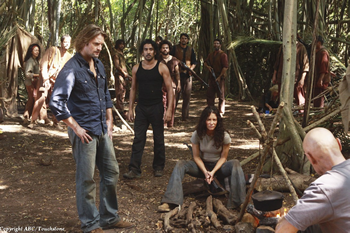
Contemporarily, we are so fascinated by the unprecedented rapidity with which something goes viral and becomes a part of the lingua franca that we sometimes forget the fact that normally, a thing becomes a part of our cultural fabric gradually, so much so that we don’t even notice exactly when it becomes ubiquitous; it just is, as though it always has been, even though its rise to omnipresence took years to achieve. This is especially true when it comes to the movies’ place in the cultural genome, a realization by which I was repeatedly struck while watching the final season of Lost unfold. The show is justifiably much lauded as being wildly original in the context of network TV, but I can’t help but notice how often it includes intertextual references to movies to underscore its narrative points.
A telling example of this phenomenon happens in Episode 8 of Season 6 of Lost, “Recon,” in which Locke /The Man in Black (Terry O’Quinn) is explaining to Kate (Evangeline Lilly) why Claire (Emilie de Raven) now hates her. When Kate tells him, “That’s very insightful. Coming from a dead man,” Locke dramatically pauses before replying, “Well, nobody’s perfect,” which is also the famous last line of Billy Wilder’s Some Like It Hot (1959), said by Osgood (Joe E. Brown) after Jerry/Daphne (Jack Lemmon) reveals that he’s a man. You would think that the blatant nature of the reference might result in a deluge of analysis, but the opposite has been the case, with comparatively subtle references to things like the novels Watership Down and A Wrinkle in Time getting more notice. As of this writing, it’s mentioned on neither the “movie connections” section of the episode’s imdb.com entry nor under the “Cultural references” subheading of its Lostpedia article. It is noted in the Lostpedia Discussion section, but sloughed off as more of an in-joke or a stretch or just a coincidentally used common phrase as opposed to something to be taken more analytically seriously. While I suppose I can believe that maybe the phrase’s initial inclusion was accidental (although given its place in popular culture I doubt it), I can’t believe that none of the many film savvy folks who read the script prior to its being produced didn’t notice and comment on it and the fact that it remains leads me to believe the authors’ (Elizabeth Sarnoff and Jim Galasso) wanted it in and had their reasons for doing so. The phrase is just so iconic that I can’t believe otherwise.
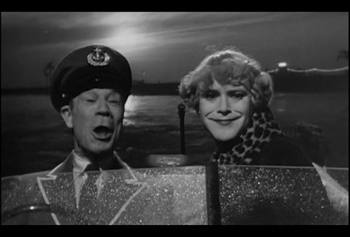
Audio of last line from Some Like It Hot [audio:http://flowjournal.org/wp-content/uploads/2010/06/daphne-osgood.mp3|titles=Daphne and Osgood]
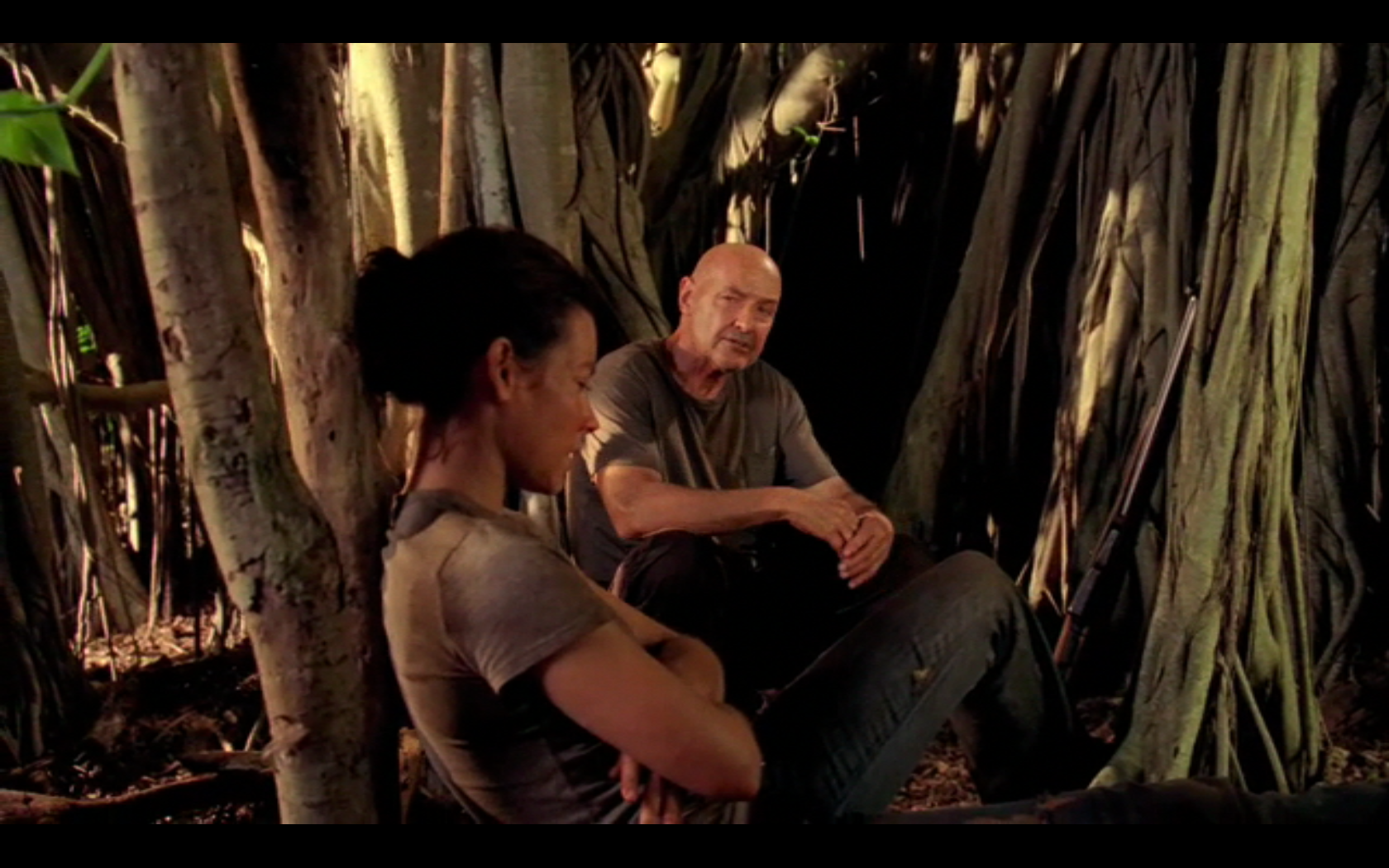
[audio:http://flowjournal.org/wp-content/uploads/2010/06/locke-kate.mp3|titles=Locke and Kate]
Obviously, it’s open to interpretation, but for me the beauty of its use in this context is in the way it inverts the source. In Some Like it Hot, “Daphne” is the one who is not what he is supposed to be and after his confession, it’s Osgood who surprisingly dismisses his imperfection. Conversely, in Lost it’s not Locke who confesses; instead, Kate, who he’s trying to fool, calls him out. In this instance “nobody’s perfect” is the con man’s chilling excuse rather than the victim’s humorous absolution of the perpetrator. But were Some Like It Hot not as culturally prominent as it is, I wouldn’t be thinking about the scene in this way and that its incorporation into Lost acts as a kind of shorthand to create a response in the same way a stock character or situation does is what makes its use so powerful.
Less noticeable but no less interesting are the uses of specific shots from movies that Lost incorporates into its episodes. The visual language of cinema and TV is finite and certain shots recur endlessly, rendering their repetition meaningless as concerns their connection with other sources and any interpretive light they might shed on a particular scene. A case in point occurred in the final episode of Lost, “The End,” in which I laughed out loud when Jack jumped at Locke. It’s a shot that’s currently used ad nauseam in action movies and I immediately remembered I’d just seen it in Clash of the Titans (Leterrier 2010). Given their respective relationships with their fathers and the role destiny plays in their tales, I suppose you could claim a connection between Jack (Matthew Fox) and Perseus (Sam Worthington), but in this instance I do think it’s just a happy (at least to me) coincidence.
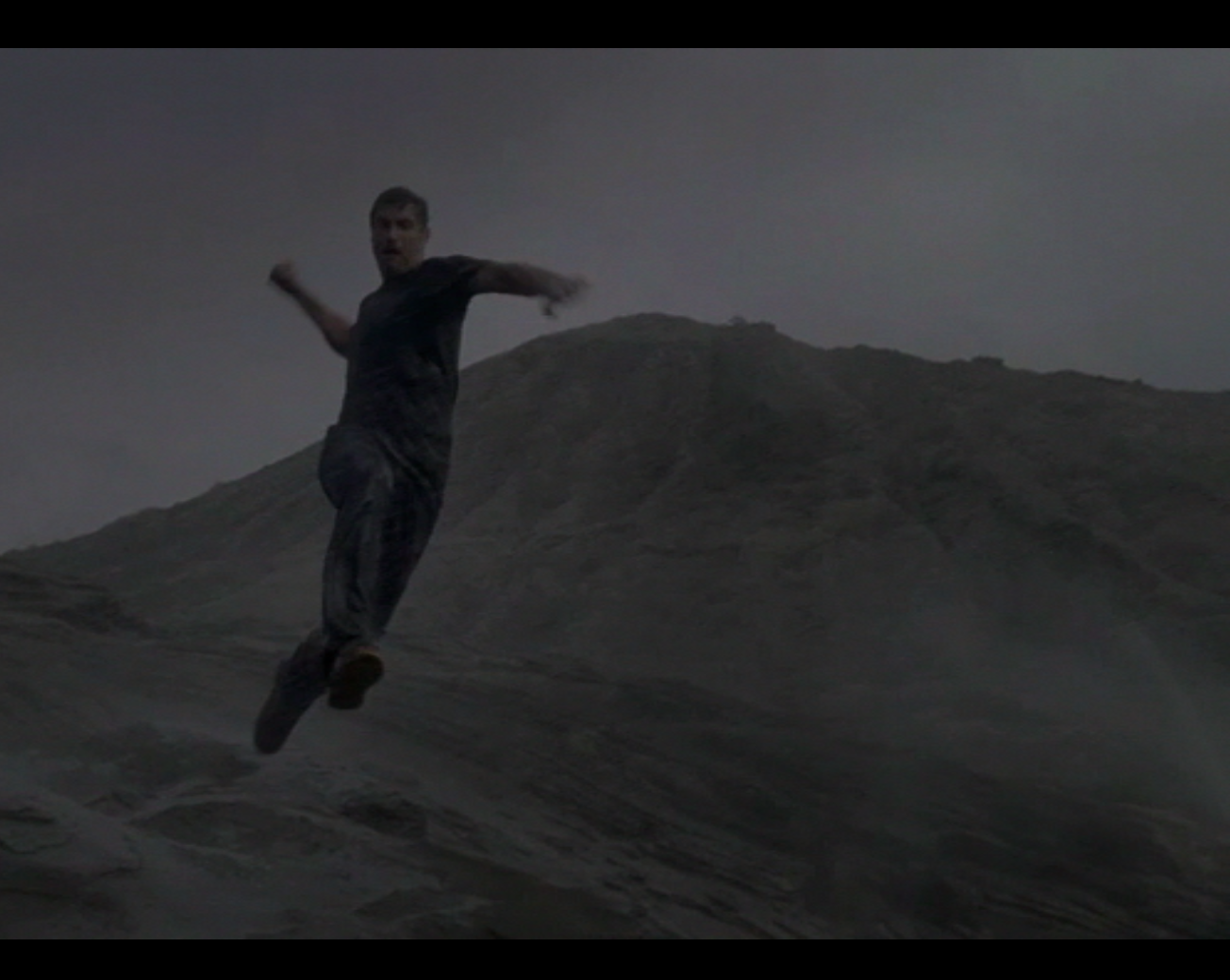
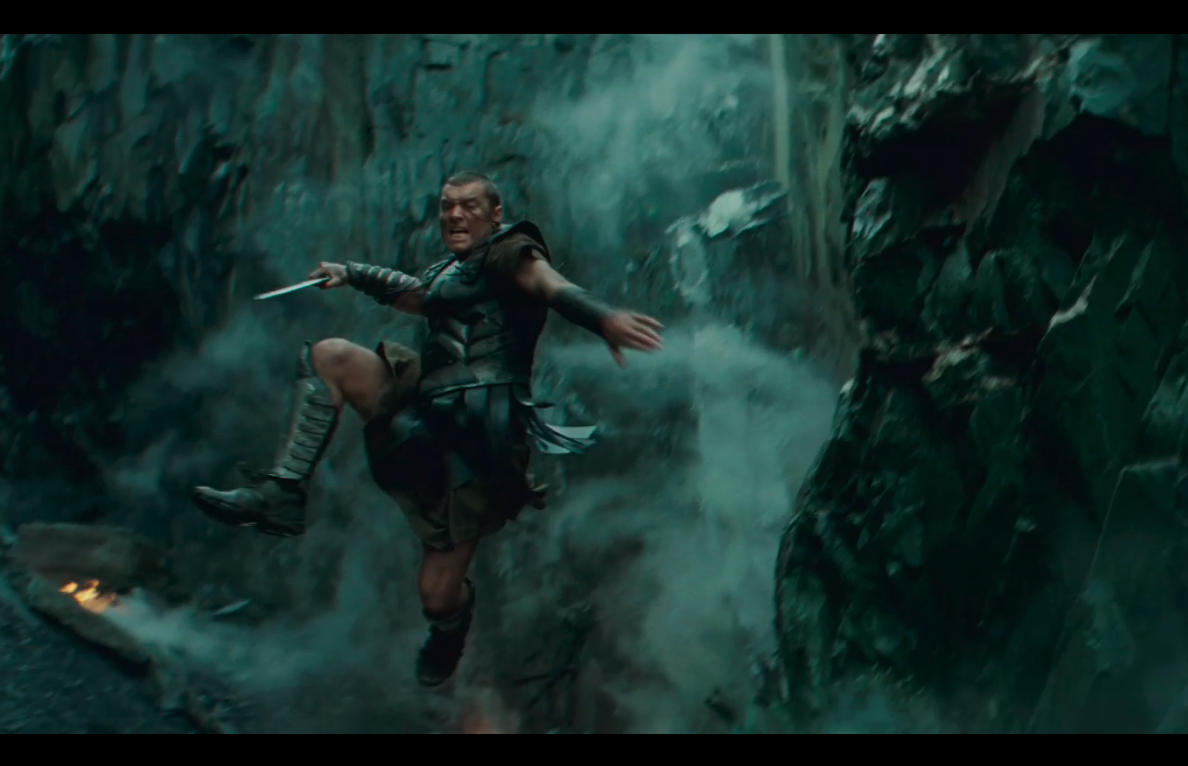
On the other hand, there’s a helicopter shot of a group led by Jack that recurs earlier in the same episode. It’s in many ways a mirror of the introductory shot of Maria (Julie Andrews) in The Sound of Music (Wise 1965). This too may be wholly unintentional, but it’s harder to let this one slide as inconsequential. Like the aforementioned reference to Some Like it Hot, this too neatly inverts its source. In The Sound of Music it’s a shot that introduces us to our heroine singing in the prelapsarian Eden of the Austrian Alps and it’s full of magic and wonder and leaves us anticipating that which comes next as she races off to face her future. It’s a sublimely joyous shot and it serves to reinforce our belief in Maria over the remainder of the film, even though Nazis soon overrun her Eden. In Lost, the shot comes during “The End,” by which time we know these characters well and we also know there’s nothing else to come; whatever the end is going to be, they’re going to face it and the story will be concluded, if not exactly resolved. And the seemingly paradisiacal setting of the island does not fool us; we know that it isn’t necessarily what it appears to be and that humanity has long since fallen. They leave not with the optimism of a songbird, but with the grim determination of warriors knowingly going off to die in battle, which rather than filling us with anticipation instead fosters a sense of dread. We’ve seen their foibles; we know they aren’t invincible and we’re far from certain they’ll be able to overcome whatever awaits them and the shot has the neat effect of confirming our doubts.
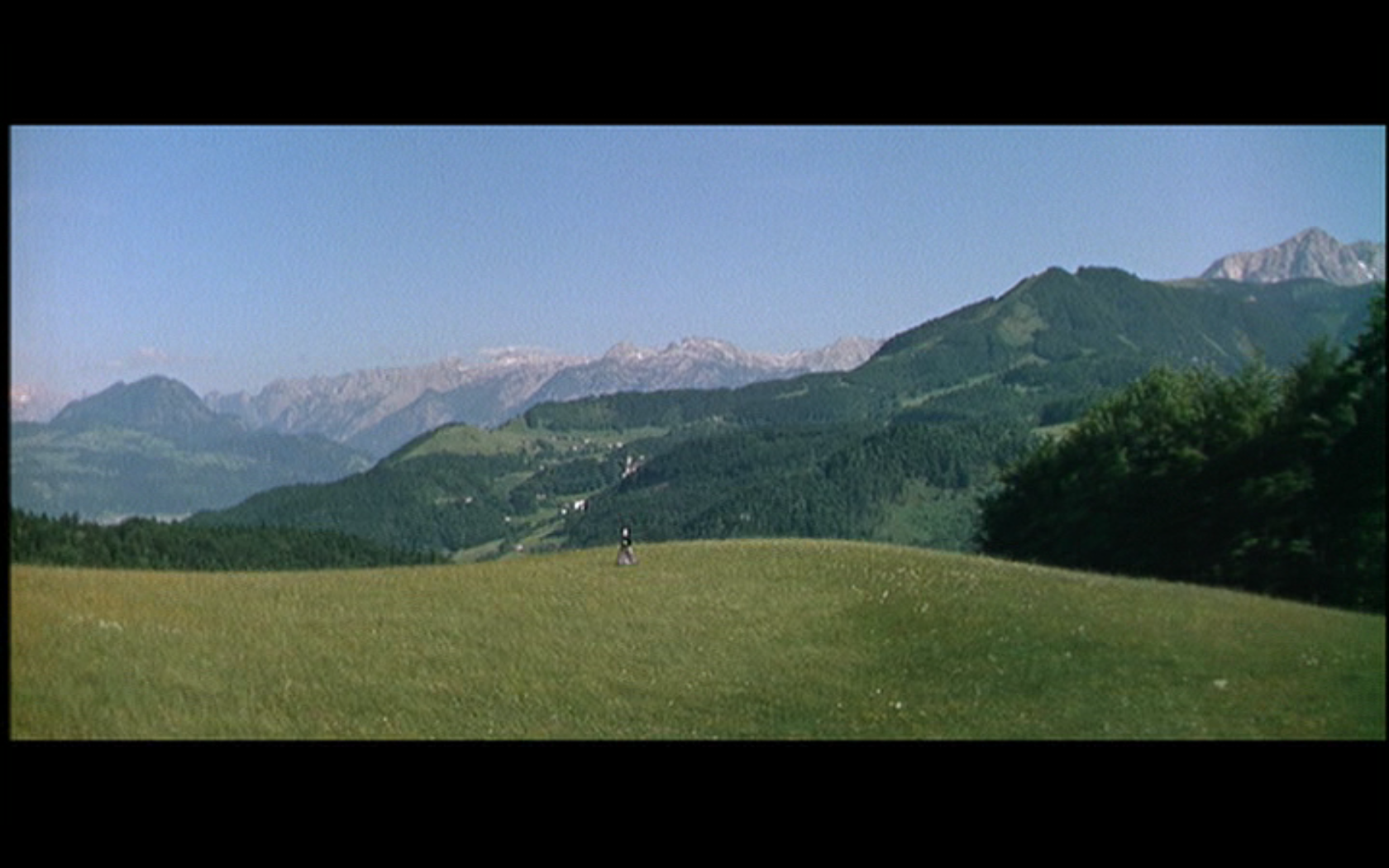
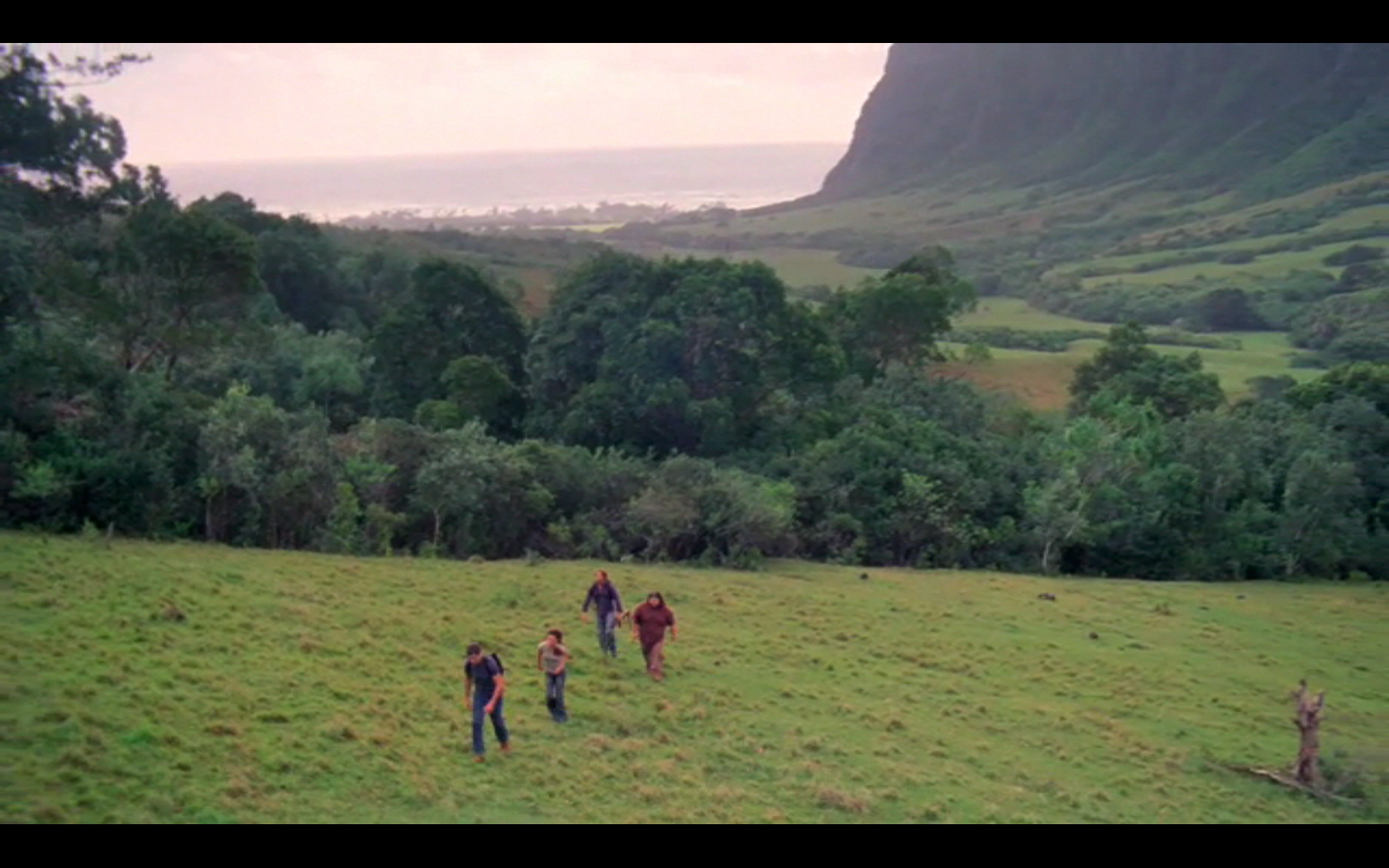
I’m far less certain that this shot was meant to reference The Sound of Music than I am that “nobody’s perfect” purposely quotes Some Like it Hot. But whether it was supposed to or not is beside the point because I responded to it as though it was, which allowed me to consider the moment contextually in a way I wouldn’t have otherwise done. As my reading of Lost illustrates, we are at an interesting point in media history, one in which so many of us have read and seen so many things that have become a part of our intellectual DNA that we can and often do add our own sources to a text that was never meant to have them. We are collectively using the same materials to create our individual narratives, the result of which, to quote Whitman, is that in contemporary narrative visual media “every atom belonging to me as good belongs to you.”
Image Credits:
1. ABC/Touchstone promotional still from Season 6 of Lost.
2. Still from Some Like It Hot. Provided by author.
3. Still from Lost. Provided by author.
4. Still from Lost. Provided by author.
5. Still from Clash of the Titans. Provided by author.
6. Still from The Sound of Music. Provided by author.
7. Still from Lost. Provided by author.
Robert, I enjoyed this article both as a fan of the show and as a student of the way that the Internet has been pivotal in the expansion of the “mythology” of the island. Lost is certainly one of the more fascinating case studies of a program that successfully weaves a tapestry of cultural narratives, references and texts into a modern story of redemption.
In a show packed with so many cultural references (as recent as the Red Sox championship and as old as mythology itself), I’m quite impressed you found a reference that isn’t part of the Lostpedia site! Have you shared this discovery with them?
Thanks for the comment, William! I have not shared this–or a number of other things, including what I saw as a pretty clear reference to The Graduate earlier in this season–with Lostpedia but I think I probably will as I’d like to see what other folks have to say about these observations. On another note, I’m interested in your view of Lost as a “modern story of redemption.” I really liked this season, but “The End” left me quite cold and I’m still trying to make sense of what I think about the series as a whole.
One of the more frustrating aspects of television series is the cycle of renewals and the pressures from the studio systems to prolong a series once it gains popularity. I’m not sure whether Lost was intended for a seven year run. For a while the show seemed to deviate from the story arc, and the end (everybody’s dead and they all died at different times and from different causes) felt as though it was a “hail mary” pass to wrap up the mythology of the island, the Locke storyline, the Jacob/man in black story line, Jack and Christian, etc…
From the beginning, I read the “island” as being a “purgatory” of sorts, and I have to think that most of the series was an elaborate smoke screen (smoke monster?) to deliberately confuse and string along dedicated viewers who may have figured out aspects of the story early in season 1.
Initially, when I was speaking of redemption, I had in mind the Jin/Sun story line, the James/Juliet story line, and the other romance/separation/reunion stories. Each of the couples reunited at the end, and each of the male characters faced challenges in the process that allowed them to redeem themselves after being “lost” from their partners for so long. I think what’s so fascinating about Lost is that the Lost universe allows for each story to be told for its own sake, not necessarily as part of the “island” story.
In similar respects, Lost is a story about letting go. Jack’s story, specifically, finally ended when he was able to give himself over to the idea that aspects of his life were out of his control.
Incidentally, I “let go” of caring deeply about the show a couple of seasons ago when it was clear that I couldn’t keep up with the interwoven story lines, the puzzles, the cultural references, etc. In the very last season, I simply watched to be entertained and tried not to let the “island” consume me as it did to so many others.
Have you made any headway into making sense of the series as a whole?
William, while I’ve been thinking about it a lot, I haven’t made any more headway into making sense of the series as a whole, at least not in the “grand theory” sort of way that so many other folks seem to be able to come up with. One of the beauties of the show is that it has so much detail that it allows for wildly varying overarching theories to be equally plausible, and that makes it fairly unique in the history of TV narrative. That said, I think you’ve hit the nail right on the head in suggesting that the financial pressures that require a show to constantly renew itself in order to keep an audience interested and stay on the air were particularly evident over the course of Lost’s run, during which it went through a number of series reboots. For me this was a big problem as the show lost its narrative congruity and became schizophrenic, going off into too many different directions without ever really satiating my need for resolution. I’m okay with vagueness, but after a while when it’s all vague it gets old and the show started feeling a lot like Twin Peaks, which suffered from the same issue, albeit much earlier in its significantly shorter run. So while I don’t have a grand theory, I do ultimately judge the show a noble failure, which I don’t mean derogatorily. I loved the first two seasons, but after that it went off the rails for me and never quite got back on track although last season and most of this one, prior to the final episode, were much better than seasons 3 and 4. So I view the series in the same way I view a movie like Paul Thomas Anderson’s Magnolia: it’s ultimately a mess, but what a glorious mess it is, and I’d rather watch rare gems like Magnolia or Lost 1000 times more than “successful” films or TV shows that lack ambition, originality, and innovation.